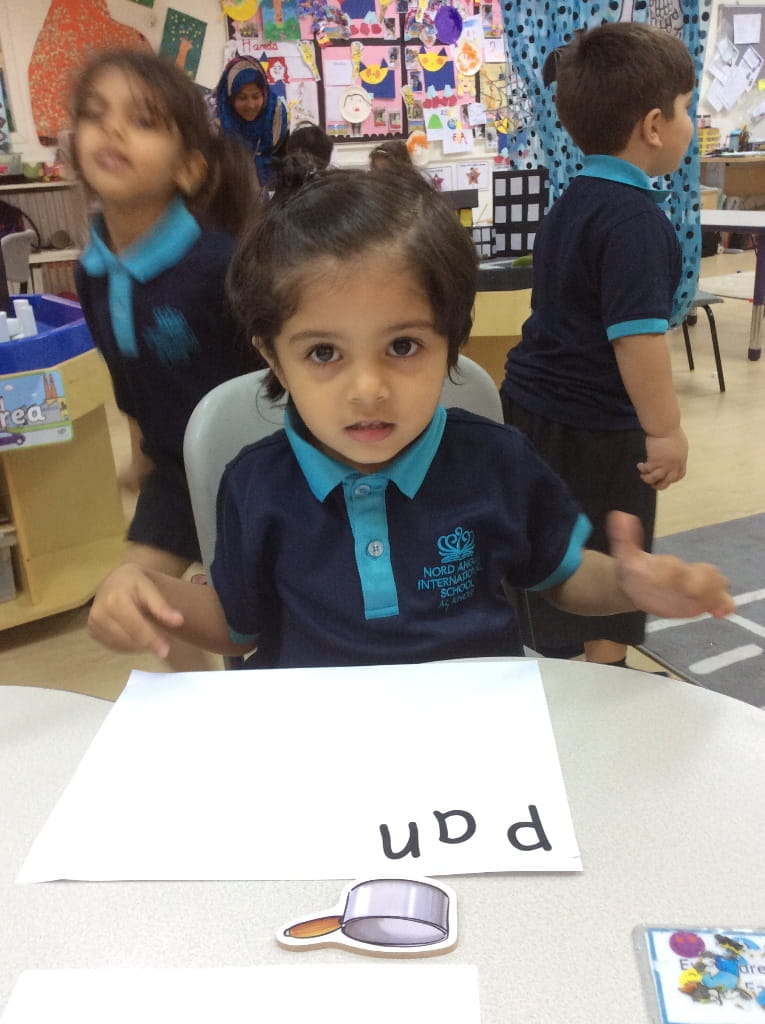We use cookies to improve your online experiences. To learn more and choose your cookies options, please refer to our cookie policy.
Admissions Are Now Open for 2025 - 2026!
Please contact our Admissions team for next steps.

I hope you enjoy reading the fourth installment of our information about the Early Years ‘Areas of Learning’. We have looked at all 3 Prime areas over the last month and now we move onto the first of Specific areas of learning which is ‘Literacy’. The term "literacy" is used by some to simply describe reading and writing, but in fact, literacy covers a much wider range of learning.
Early literacy is what children know about reading and writing before they can actually read and write. In fact, early literacy skills begin to develop right from birth. A child's positive early experiences with books and language lay the foundation for success in learning to read. They include such things as awareness of the sounds of language, awareness of print, and the relationship between letters and sounds. Other literacy skills include vocabulary, spelling, and comprehension. It includes talking about books, print in the environment, early mark making and writing, as well as sharing books and reading.
Reading books aloud to children stimulates their imagination and expands their understanding of the world. It helps them develop language and listening skills and prepares them to understand the written word. Even after children learn to read by themselves, it's still important for you to read aloud together.
Reading aloud is one of the most important things parents and teachers can do with children. The early years are critical to developing a lifelong love of reading. In the Early Years we also have our Reading Eggs which the children enjoy using www.readingeggs.co.uk
When children begin to read it is about listening to stories, hearing the same stories again and again so they hear story language repeated time and again. It is also about telling stories using pictures and picture books that explain who the story is about and what is happening in the story. Talking about the book, becoming the characters and acting out stories, enjoying immersion in books and story telling are all ways to engage children! They learn about how books are read, to learn letters which blend to make words and combined to make sentences and then sentences which can be put together to tell a story or give information. It begins with building an enjoyment of storytelling and sharing books both at home and school.
Writing developing in the Early years from mark making where children use different ways to ‘write’ words, sentences, ideas, sometimes using letters but often through marks, where they know what it means. Next, they move onto using some of the letters they know and can hear in their writing. Through phonics, they learn to recognise letters and sounds in words, to blend individual letters together to make words and listen to words and identify letter sounds for writing. Then into individual words before sentences. It is also important to build fine motor skills so they can form recognizable letters and give opportunities at home and at school to write.
Literacy skills are a vital part of children’s learning and they need to build their skills in order to develop in their learning and gain the most from the opportunities they are given. In order to do this, the children need to ENJOY learning and have FUN!!!
We also have an Open door phonics session on Tuesday 4 December from 07:30 to 08:15.
We look forward to seeing you then.




